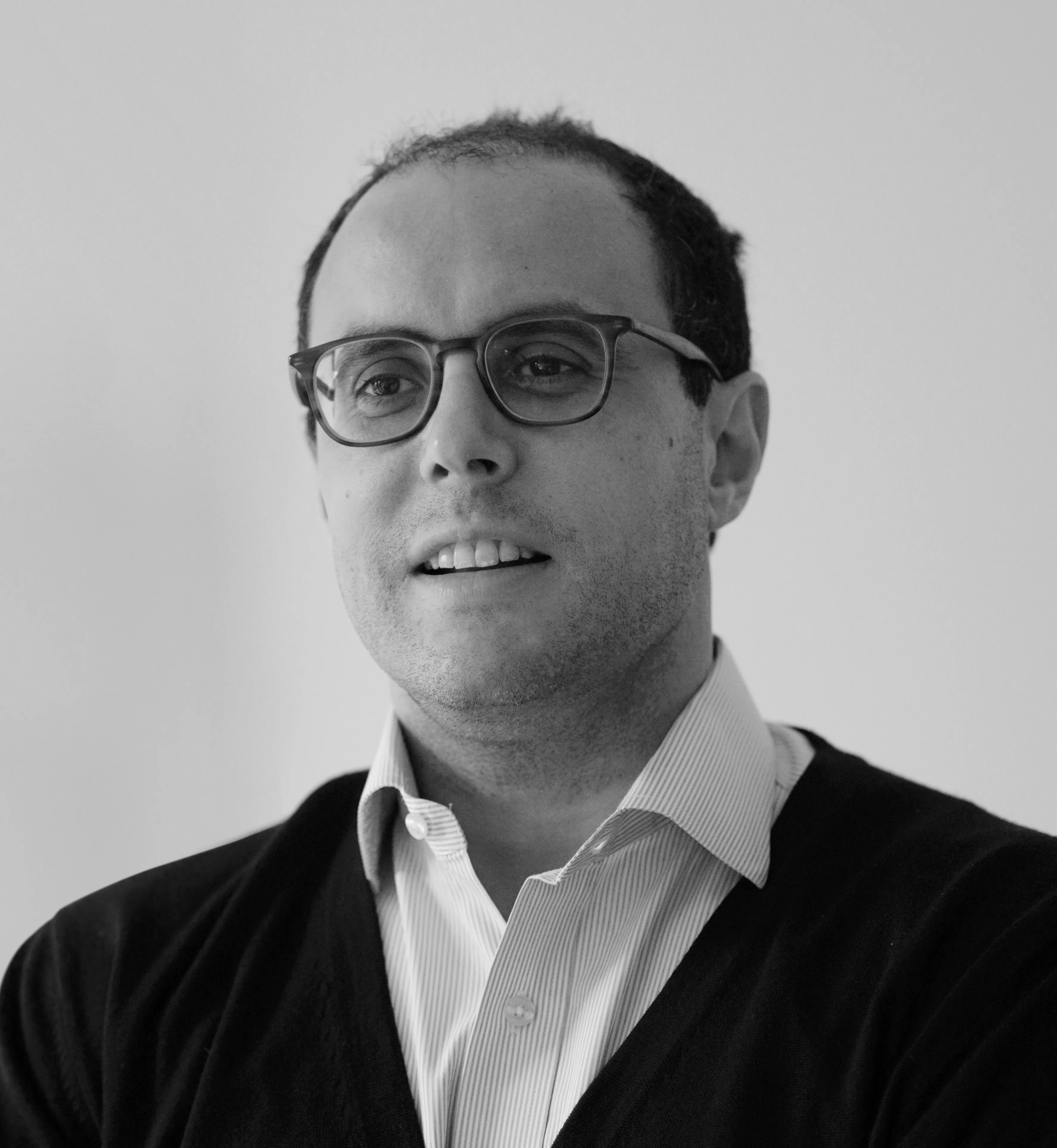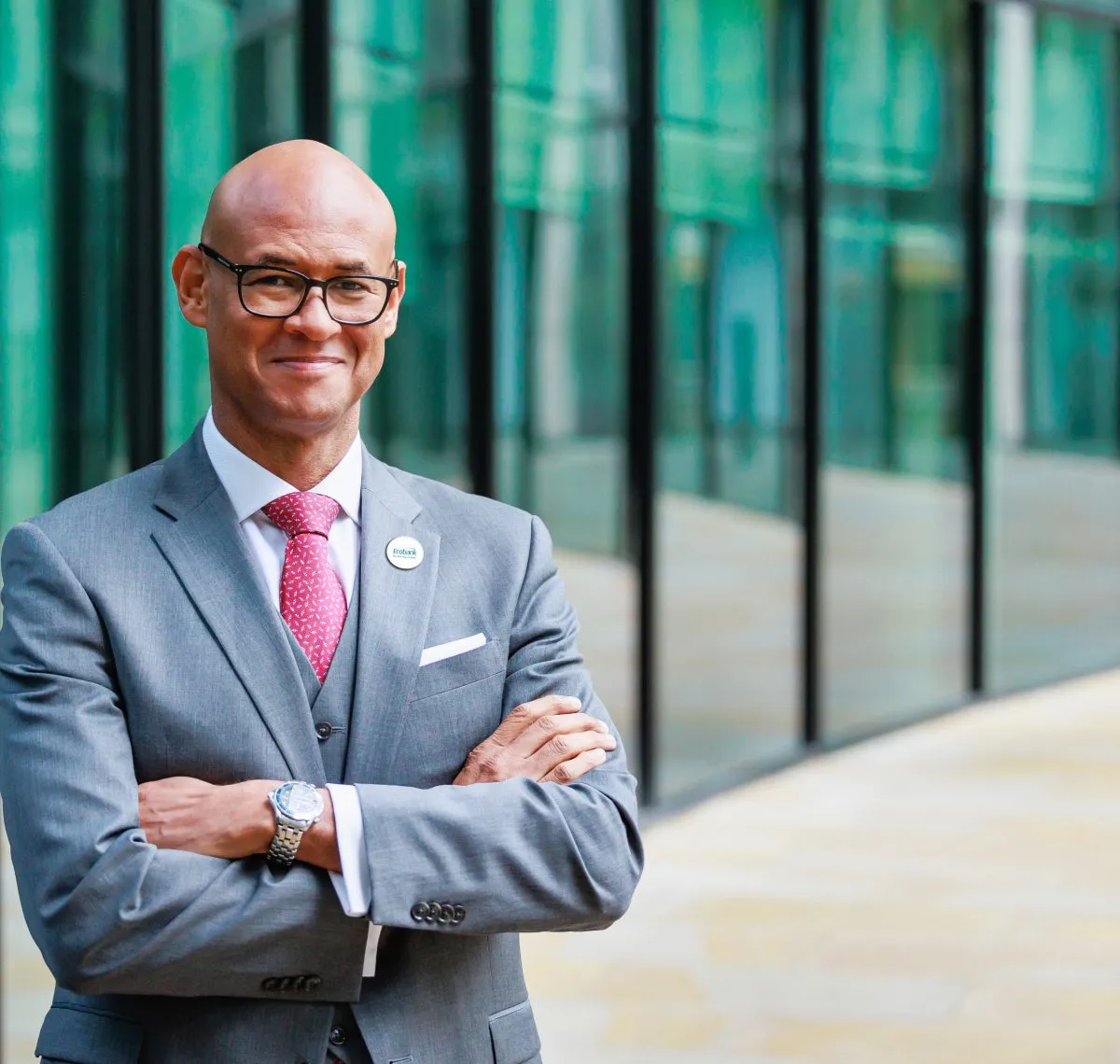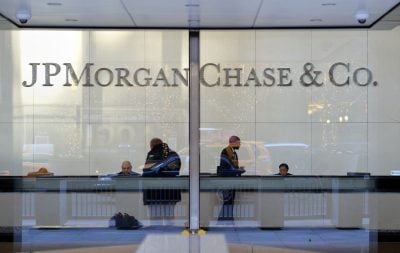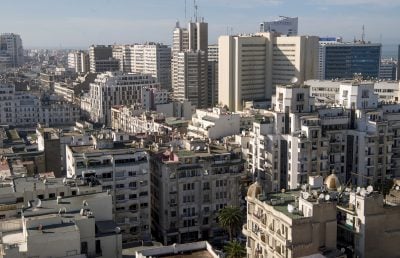Jeremy Awori has had an interesting year at the helm of Ecobank Group, the African multinational. Before his appointment in March 2023, with over 25 years in the financial industry, he had served in leadership roles including being managing director and CEO of Absa Bank, Kenya. He also held senior roles at Standard Chartered in various countries and regions across the Middle East, South Asia and Africa.
Taking over at the top of the Bank at a time of uncertainty in global markets and asked whether it has been easier or harder than expected, he responds in his usual calm way: “I always say, expect the unexpected and plan for the unexpected – but we literally could not have predicted the year we’ve had. Aside from exciting moments, so many things came up that we didn’t expect so I’ll be honest with you, it has been challenging,” he reflects.
The challenges have stemmed from the diversity and complexity of issues that the bank, along with the entire global economy, has been facing in recent times. The shadow of Covid-19 is still lurking and the conflict in Europe as well as wider geopolitical shifts are threatening to upend the 70-year-old order that has guided international relations since the last Great War. Against this backdrop, throw in high inflation and interest rates, debt defaults, unsteady macroeconomic conditions and currency volatilities in some of its major markets and the bank finds itself living in the dreaded ‘interesting times’, as the Chinese proverb has it.
Nigeria, in particular, has been a unique issue. The new administration in the West African economic powerhouse chose to administer some shock therapy to the ailing economy, resorting to more orthodox policies that had severe, albeit expected results in the near term.
“One of the big things that impacted the banking sector and the markets was the removal of the Nigerian fuel subsidy and the changes in the exchange rate, which created some immediate pressure in the parallel and formal markets. So we had the currency depreciation, which obviously affected us,” Awori recalls.
The situation has become more stable and, Awori says, the Bank has taken it all in its stride. “We have seen an improvement in the exchange rate and sentiments have definitely improved but there’s still more work to do within the Nigerian context,” he notes. (See Cardoso interview on page 18 and story on page 76.)
Away from Nigeria, however, the Bank has some cause for celebration. In April, the Group released its audited results for 2023 with some impressive metrics including a return on tangible shareholders’ equity (ROTE) of 24.9% and an 8% rise in profit before tax, reaching $581m, or a 34% increase at constant currency. The Group also surpassed the $2bn mark in net revenue for the first time since 2015, marking an 11% uptick, or a substantial 31% rise at constant currency, to hit $2.1bn.
The Group also maintained stable credit quality, with non-performing loans at 5.4% and a cost-of-risk at 128 basis points. It remains in good financial health with a capital adequacy ratio of 15.0%, above the regional average and regulatory minimums; loans-to-deposits ratio of 55.4%; and a cost-to-income ratio of 53.9%, a far cry from when the Group used to draw concern from industry watchers for its high ratio of over 60%.
Growth, transformation and returns
The key to this, Awori says, has been the strategic focus on growth, transformation and returns (GTR) that the bank has adopted under his leadership. That has entailed further growing our corporate and investment banking, and focusing on growth areas in payments, consumer and commercial banking, specifically the small and medium-sized bracket of the market, in which the Group did particularly well.
“All our businesses have grown strongly in the past year but the strongest performer has been the commercial or SME business,” he says.
The Group has also focused a lot more on Central, Western and Southern Africa, where it has experienced notable growths in revenue. “So we have broad diversified growth. The UEMOA [francophone West Africa] continues to grow strongly and Anglophone West African markets have also come back strongly, even after Ghana’s debt situation,” he points out.
“So we’re sharpening our market focus and that has also started to come through with some of our businesses that were not performing to our expectations,” Awori adds. The idea, he says, is to consolidate and grow in markets where the Group is already strong and to find ways to improve where performance is weaker.
Operationally, he says, the Group has applied more discipline to managing its expenses. “When it comes to the expense base, we have looked at every element of our cost, both [the] local currency and foreign currency cost base. We’ve started off a number of initiatives around automating and simplifying those processes. And that will occasion cost and productivity benefits.
“We’ve been quite deliberate in the areas where we are not as efficient, to bring the cost to income ratio down.” Investing in technology means the bank can improve customer experiences, make savings, boost revenue and ultimately improve the cost to income ratio as it has done.
Awori emphasises that Ecobank’s focus on growth and transformation is crucial for shaping its future trajectory to meet evolving customer expectations. This entails refining product propositions, pricing strategies, and service levels to enhance competitiveness.
The Group, he insists, has a clear agenda to transform its business for greater competitiveness and last year’s results are evidence of the prudence of that strategy. In addition, the strategy will also help deliver higher returns for shareholders. Here again, the 2023 results would seem to bear that out. Indeed, he says, although currency challenges have taken some shine off the results: “If you look at our top-line revenue growth, it would have been well over 30% in constant currency.”
Heavy hitters in key roles
Ecobank’s regional growth is very much in line with the vision of its founders, who in 1985, first formed Ecobank Transnational Incorporated (ETI) with an authorised capital of $100m. The first branch was opened in Togo in 1988, followed by modestly rapid expansion across West Africa in the 1980s and 90s, a time of political and economic uncertainty.
It was not until nine years later, in 1994, that the bank was able to declare a $5m profit, subsequently paying out its first dividends a year later. In 2006, ETI went public, listing simultaneously on three stock exchanges in West Africa, namely the BRVM, the Ghana Stock Exchange and the Nigerian Stock Exchange.
Today, with a presence in 35 sub-Saharan African countries, the Ecobank brand is very much a pillar in the continent’s financial architecture. Over the years, it has scored a number of firsts, such as last November, when the bank announced a ground-breaking $200m agreement with African Guarantee Fund to support SMEs.
“We are in a strong position,” Awori notes. “We are in the top three in 15 or 16 markets but there is still room to grow.”
In March, the Group announced a slew of new appointments that it says will be critical to drive its mission of growth, transformation and returns, the five-year, three-pronged corporate strategy adopted under Awori’s leadership.
The appointments, as Awori is keen to point out, include Abena Osei-Poku as regional executive for anglophone West Africa and managing director, Ecobank Ghana; Anup Suri as group executive, commercial and consumer banking; Michael Larbie as group executive corporate and investment banking; Thierry Mbimi as group executive internal audit and management services; and, in a new position he has created, Martin Miruka as group executive for transformation, enablement and customer experience.
“They are leaders with regional and global experience, as we need heavy hitters to drive all these businesses forward,” Awori says of the appointments, reiterating the sentiments he expressed while welcoming them to the Group. In particular, the new role in charge of transformation, enablement and customer experience will be critical to the bank’s next phase.
“The transformation office will make sure that all our transformation initiatives are delivered on time and derive the full benefits; that they are tracked and monitored. This role really just makes sure that we have a strong execution bias.”
The same office will also focus on automating manual processes to deliver services at a cheaper rate to customers. “I introduced this role because I want clearer responsibility and accountability to deliver initiatives that would significantly improve the customer experience and address customer pain points.”
In line with much of the industry, seismic change for the bank has meant a greater focus on the use of digital tools. In 2016, the Group launched its digital transformation agenda as part of its Roadmap to Leadership campaign, outdooring its mobile application across the 33 countries in which it was then operating.
The application is estimated to have more than 14m users across all markets, presenting an alternative, digital storefront to customers on the go.
Awori explains, however, that while investments in digital tools to ease consumer interactions are key to the agenda, the bank recognises that there are many consumers who will still want – or even need – physical interactions and so it will continue to make both available to customers.
Indeed, African economies continue to remain cash-heavy in spite of tremendous digitalisation efforts in some countries. “We are still going to invest in our franchise because many of our customers still value and use the branch network. But we’ll also be investing in equipment and technology – like ATMs, the cash deposit machines, the mobile and online channels – as well as our agency network to take banking services as close to customers as possible.”
Other investments are being made in the bank’s data centres as well as in the capabilities of its staff to be able to deal with the evolving demands of modern banking. Awori says these investments are all part of the grand effort to develop better products for its customers. “We are looking at refining and sharpening our products to make them more relevant. We are investing in our business because we believe in the medium and long-term prospects of this continent and what we can do as a pan-African operation.”
This long-term commitment to the continent, Awori argues, is partly responsible for the bank’s ability to weather the recent storms across its operational areas. “Ecobank has very strong relationships and deep roots in our markets and we are not fair-weather friends. We are here to operate in good and bad times and we are here to support our customers.”
Strength in diversity
More germane, perhaps, is the bank’s diversified presence, which means that if the bank is facing challenges in one region, they can be offset by robust results from another. “That has helped us materially,” Awori concedes.
Instability in the Sahel, however, must pose a much more potent threat to the Group although perhaps unsurprisingly, Awori chooses to strike a positive and diplomatic tone. “We know there’s political change happening and we are obviously very close to those businesses so I think it’s really just about seeing the long-term prospects, working with government regulators in a way that’s good for the business.”
Even in less febrile climes, banks have to deal with often unpredictable regulations and policies. In Nigeria, for example, the new leadership at the Central Bank has announced new minimum capital requirements for banks. In March, it stated that commercial banks with international licences would need a capital base of N500bn ($402m), while national commercial banks have to raise N200bn.
The move is expected to force some consolidation in the Nigerian market as smaller banks are compelled to either merge or be taken over by others. Awori broadly agrees with the new capital requirements, pointing out that better- capitalised banks will help address the lending gap and drive economic growth.
Access to finance is one of the perennial bugbears of business growth in the continent, especially for SMEs. “If we’re going to change livelihoods and lives, we need more capital invested into the banking sector,” Awori stresses.
Consumer lending in Africa is also well behind other regions, at 10% of GDP, compared to anywhere between 60% and 80% in other regions. The path to prosperity for ordinary Africans runs through a more empowered financial sector that is able to develop products for businesses and consumers to pursue their various goals.
That means that regulatory nudges such as these must remain in policymakers’ toolboxes. “Banks will not generate capital only through profit accretion, but we’re also going to need more capital injections and more capital-raising,” Awori says, giving an indication of how the Group would respond to the new capital requirements.
Having the capital is one thing, but then there is an increasing concern about the lack of bankable projects in the continent, which means that even with the best will in the world, finance houses may struggle to find ways to expend their liquidity to derive returns worth the trouble.
Awori however thinks that in Africa’s diverse markets, the right projects can be found. Banks, he says, have to study these markets and determine which risks match their specific appetites.
With a record number of elections expected in 2024 and the prospect of changes in governments and policies, the risk atmosphere is considerably heightened. In the medium term, as inflation and interest rates moderate further, Awori thinks more needs to be done. “And we want to be ready to really bank those customers and help them achieve their goals and aspirations.”
That moment cannot come too soon. The continent continues to face headwinds generated, at least in part, by externalities such as the pandemic, the war in Ukraine and some of the resource nationalism generated by these uncertainties.
This has meant not only heavier burdens on national and household budgets but also challenges in accessing capital, much of which has fled to safer markets where coincidentally, interest rate hikes now mean better returns.
Awori, however, is still hopeful that the tides are turning. “We’ve seen some significant drops in foreign direct investments in some of our markets but hopefully if we see rate easing, we will see more money coming back onto the continent,” he says.
With a lowering in rates could also come more manageable borrowing rates for African countries, a fair number of which were perilously exposed when rates went up and their repayments were suddenly difficult to meet.
“Hopefully, we’ll see the cost of borrowing coming down for governments, which hopefully will encourage them to invest more in infrastructure because they’ll have more room to do so.” Already, he points out, Côte d’Ivoire, Benin and Kenya have returned to the international money markets and the domino effect that was predicted after Ghana’s debt default has not materialised.
Partnership, not conflict with fintechs
One of the sectors that has seen lower investments as a result of the adverse global macro economy is the fintech sector, which had become accustomed to the free flow of financing from the West to spur growth and innovation in an area that is a direct competitor to the banking sector, Ecobank included.
“We saw a plethora of fintech companies coming into the market, most of them funded by pre-seed capital. With the outflow of foreign capital and uncertainties in the exchange markets, they have found it a bit more difficult to raise capital. I think we will also see improvement in the pricing of securities and various investments and stocks that are listed.”
The rise of these fintech firms, such as Flutterwave, Opay and Interswitch, all members of the exclusive club of African unicorns, can in many ways be interpreted as a direct challenge to the legacy institutions in the financial services sector. And that’s before telcos themselves, which are also muscling in on ground that has traditionally been held by banks, such as payments, remittances, savings and even insurance.
Awori, however, sees opportunities for these new players. “I wouldn’t say we are worried,” he responds when asked directly about the potential challenge. “I mean, one always has to be focused, not rest on one’s laurels or get too comfortable. We always have to look at the products and services that we are offering customers. Are they relevant? Are they adapting to customers’ needs?”
The way forward, he posits, is to focus on the significant room for partnerships in this as yet uneasy relationship. Banks, telcos and fintechs have to collaborate because, among other things, they have to share the infrastructure upon which the delivery of their services depends.
“It’s not that they’re not a threat, but we see working with them as an opportunity to deliver banking services or financial services in a cost-effective manner.” The benefits will be felt by consumers, especially if between technology companies and policy makers, the cost of access, whether it is devices or data, can be brought down to enable more people to use digital products on offer from banks and their upstart neighbours in the financial services space.
What would help the industry, Awori says, is a conducive environment where the macro economy is stable, the rule of law is honoured and regulations are harmonised across markets. While regulatory oversight is crucial, a balanced approach that fosters innovation and business development, he argues, would be best for the continent.
“There are certain opportunities to gain benefits of scale by allowing businesses like ours to operate easily across the continent,” he asserts. The tendency to pursue nationalistic interests, he says, adds complexity and increases uncertainties for investors.
More needs to be done to remove impediments directly in the way of the African Continental Free Trade Area (AfCFTA), seen by many as the last-gasp attempt to consolidate Africa’s economic strengths into a $3 trillion economy that, among other benefits, will be impossible to ignore in world trading considerations. “We would just encourage governments to sign up and to put mechanisms in place for this reality,” Awori says of the trade agreement.
It would also likely be good business for Ecobank, with its 35-country footprint and thus, some capacity in multi-jurisdictional operations. “We have experience operating in many of these markets. What we want to do is to make it easy for more pan-African businesses to run their operations on a continental basis. We have a deep and meaningful experience of those markets and strong relationships in them so we can bring an all-in-one solution for businesses that can enable them to expand across 10 or 15 markets.”
What Awori would love is for policy makers to look at what has worked in markets like Singapore, India, South America and China, where light touch, intuitive regulation has driven growth and innovation. “If regulations have worked in one market, say, around data security, data privacy, data protection, I don’t think we should be investing in building these things from scratch. I think we can take best practice but of course, we must make sure that it’s fit for our markets, economic and social conditions,” he says, echoing a view shared throughout an industry eager to assume a more substantial role in the African economy.
Want to continue reading? Subscribe today.
You've read all your free articles for this month! Subscribe now to enjoy full access to our content.
Digital Monthly
£8.00 / month
Receive full unlimited access to our articles, opinions, podcasts and more.
Digital Yearly
£70.00 / year
Our best value offer - save £26 and gain access to all of our digital content for an entire year!

 Sign in with Google
Sign in with Google 



